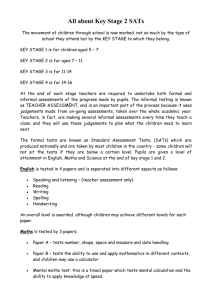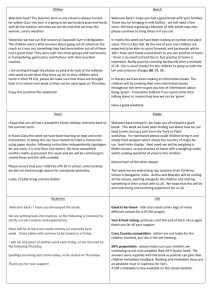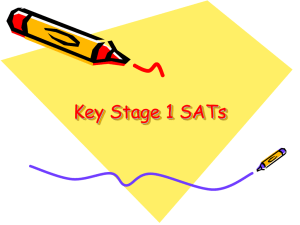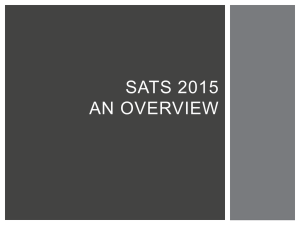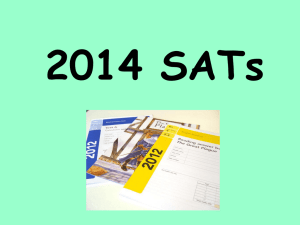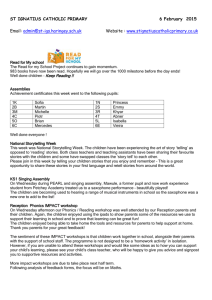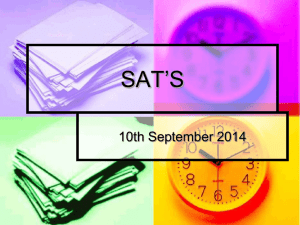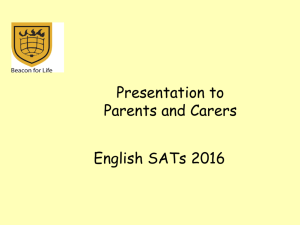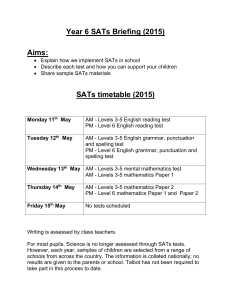Pushy parents force stressed out 10-year-olds to do harder exams
advertisement
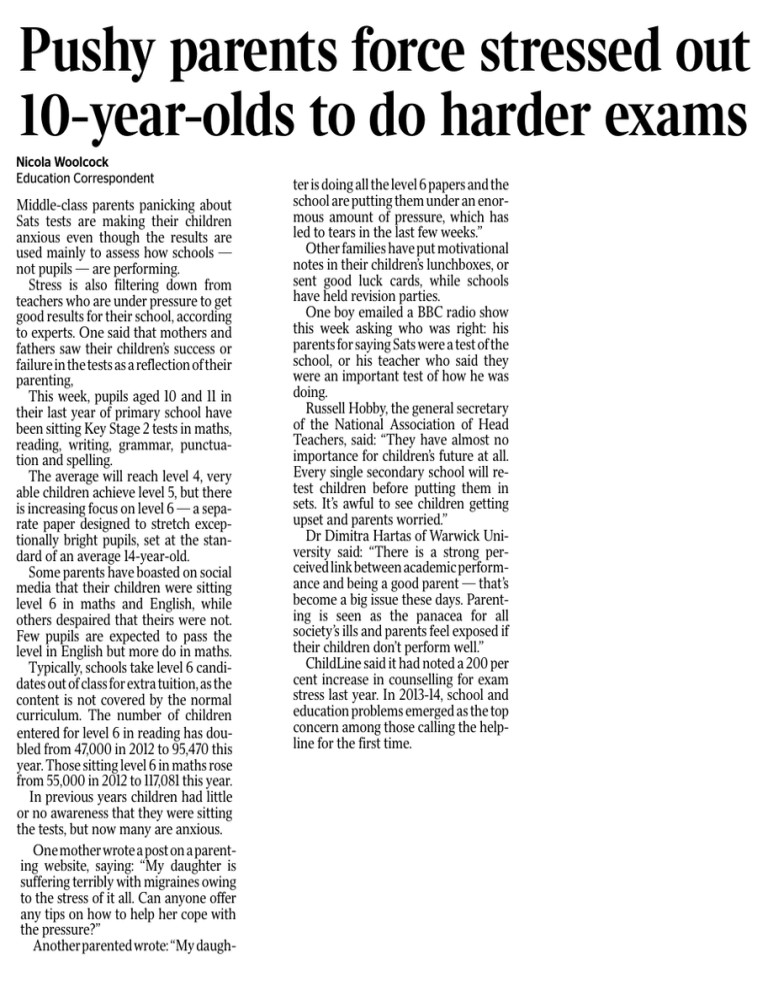
Pushy parents force stressed out 10-year-olds to do harder exams Nicola Woolcock Education Correspondent Middle-class parents panicking about Sats tests are making their children anxious even though the results are used mainly to assess how schools — not pupils — are performing. Stress is also filtering down from teachers who are under pressure to get good results for their school, according to experts. One said that mothers and fathers saw their children’s success or failure in the tests as a reflection of their parenting, This week, pupils aged 10 and 11 in their last year of primary school have been sitting Key Stage 2 tests in maths, reading, writing, grammar, punctuation and spelling. The average will reach level 4, very able children achieve level 5, but there is increasing focus on level 6 — a separate paper designed to stretch exceptionally bright pupils, set at the standard of an average 14-year-old. Some parents have boasted on social media that their children were sitting level 6 in maths and English, while others despaired that theirs were not. Few pupils are expected to pass the level in English but more do in maths. Typically, schools take level 6 candidates out of class for extra tuition, as the content is not covered by the normal curriculum. The number of children entered for level 6 in reading has doubled from 47,000 in 2012 to 95,470 this year. Those sitting level 6 in maths rose from 55,000 in 2012 to 117,081 this year. In previous years children had little or no awareness that they were sitting the tests, but now many are anxious. One mother wrote a post on a parenting website, saying: “My daughter is suffering terribly with migraines owing to the stress of it all. Can anyone offer any tips on how to help her cope with the pressure?” Another parented wrote: “My daugh- ter is doing all the level 6 papers and the school are putting them under an enormous amount of pressure, which has led to tears in the last few weeks.” Other families have put motivational notes in their children’s lunchboxes, or sent good luck cards, while schools have held revision parties. One boy emailed a BBC radio show this week asking who was right: his parents for saying Sats were a test of the school, or his teacher who said they were an important test of how he was doing. Russell Hobby, the general secretary of the National Association of Head Teachers, said: “They have almost no importance for children’s future at all. Every single secondary school will retest children before putting them in sets. It’s awful to see children getting upset and parents worried.” Dr Dimitra Hartas of Warwick University said: “There is a strong perceived link between academic performance and being a good parent — that’s become a big issue these days. Parenting is seen as the panacea for all society’s ills and parents feel exposed if their children don’t perform well.” ChildLine said it had noted a 200 per cent increase in counselling for exam stress last year. In 2013-14, school and education problems emerged as the top concern among those calling the helpline for the first time. Don’t give in to the Sats hype Analysis Nicola Woolcock S ats tests have no bearing on a child’s future but, caught up in the hysteria of “Sats week”, you would be forgiven for thinking the opposite were true. Children and parents have been led to believe that their educational prospects depend on a sterling performance in the tests. The panic has mounted over the years and is reaching epic proportions. The stress felt by teachers, whose reputations are on the line if their class gets poor results, has spilt over into the classroom. Unlike GCSEs and A levels, these tests exist only to assess primary schools and contribute to their rankings in league tables. It is bad enough that much of the last year of primary school is given over to preparing for the key stage 2 tests — with schools complaining that this narrows the curriculum and squeezes joy and the spirit of inquiry from lessons — but the misconception that the results will boost or blight a child’s future is even more damaging and needs to be dispelled. Many parents and even academics believe that children’s Sats results are used by secondary schools when deciding in which set to place a child. The reality is that secondary schools carry out their own assessment as they know the Sats test results can be skewed. The government should do more to make the purpose of the tests clear.
